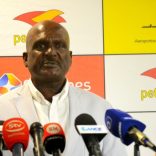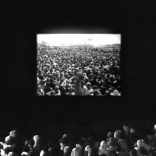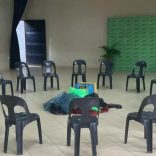Mozambique: Football League gets financing for players' air transport- Watch
‘Ponta Gea’ – The new João Paulo Borges Coelho book

Mapio (File photo)
Writer João Paulo Borges Coelho gave in to the strength of his childhood memories and fictionalised them in “Ponta Gea,” his new novel, named after the neighbourhood where he grew up in central Mozambique.
In 348 pages, the winner of the 2009 Leya Prize tells of his boyhood in the city of Beira’s Ponta Gea neighbourhood, punctuated by the imagination that fiction allows to illustrate the idea that in childhood, reality itself appears fantasised.
“In childhood, we are the centre of the world and in this there is a deep relationship between the way we look at the world and fiction,” Borges Coelho said in Maputo on Tuesday at a presentation in the Camões – Portuguese Cultural Centre.
“The prospect that young people have of reality can be seen as a first moment of fiction,” said the writer.
For Borges Coelho, narrating the richness of episodes in Beira with ‘pinches’ of fiction amplifies the understanding of events that at the time seemed illogical.
“When we are younger, we are oblivious to the law of physics,” said the author of ‘As Duas Sombras do Rio’ (‘The Two Shadows of the River’). “For us,” he continued, “the cause-effect relationship does not make sense.”
Borges Coelho stressed that the strength of a childhood that had to be related, also in the form of fiction, was so inescapable that the book ‘Ponta Gea’ imposed itself on him.
“It’s not always up to us to decide, sometimes, it’s the themes that are imposed on us, and this theme has been with me for a long time.”
The presentation of the work highlighted that ‘Ponta Gea’ is a book about childhood. The title comes from the name of the Beira city neighbourhood cited as the author’s “zone of origin”.
…l’âge où on croit qu’on crée ce qu’on nomme.
“Composed of fifteen texts that intersect and suggest a chronological sequence, but which can also be read in isolation, it is not a childhood memoir, but an exercise in fiction, of how the world was viewed from that age in which, as Proust wrote, ‘we believe we have created what we have named’,” the book’s publisher points out.
João Paulo Borges Coelho was born in Oporto in 1955, but acquired Mozambican nationality.
He won the Leya Prize in 2009 with ‘O Olho de Hertzog’ and, in 2004, ‘As visitas do Doutor Valdez’ won him the José Craveirinha Prize, the highest literary distinction in Mozambique.
He made his debut with the novel ‘As Duas Sombras do Rio’ in 2003, followed by titles such as ‘Setentrião’, ‘Meridião’, ‘Crónica da Rua 513.2′,’Campo de Trânsito’, ‘Hinyambaan’ , ‘Cidade de Espelhos’, ‘Rainhas da Noite’ and ‘Água, uma novela Rural’.
He is a professor of Contemporary History of Mozambique and Southern Africa at the Eduardo Mondlane University in Maputo, and a guest lecturer in African History at the Faculty of Arts of the University of Lisbon,
He has been researching the colonial and civil wars in Mozambique, and has published scientific articles in Mozambique, Portugal, United Kingdom, Spain and Canada.
“Ponta Gea”, the writer’s 11th novel, is published in Mozambique by Editora Ndjira and, in Portugal by Caminho.













Leave a Reply
Be the First to Comment!
You must be logged in to post a comment.
You must be logged in to post a comment.